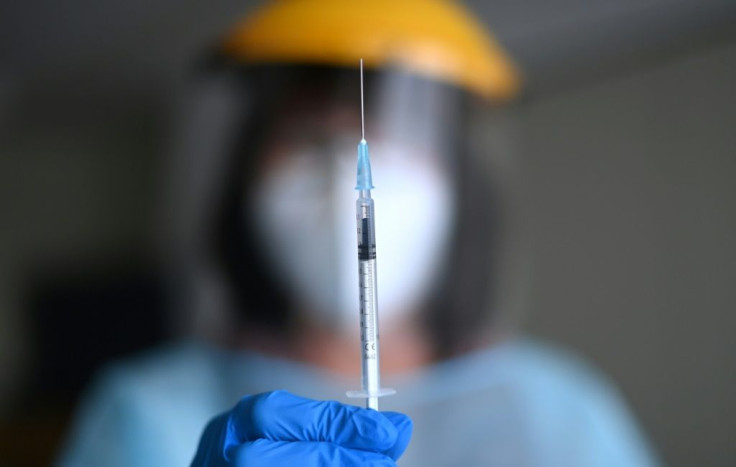Why This Doctor Says More Than One COVID Vaccination May Be Needed
As new variants of COVID-19 crop up across the world, more may be needed to fight the mutations of the virus than the current vaccine that is being offered, according to one expert.
Dr. Kavita Patel, who served under the Obama administration as the director of policy for the Office of Intergovernmental Affairs and Public Engagement, said: “We all suspected that this would not be our only set of shots, whatever we’re receiving this year.”
Patel made the comments on CNBC’s “The News with Shepard Smith,” adding “I think it points to at least, potentially, something every several years or a booster,” referring to the number of COVID vaccinations or booster shots a person may have to get based on “what we see with these strains and how much they escape the immune system.”
The remarks from Patel come as Moderna announced on Monday that more work is being done on its COVID vaccine as a strain of the virus known as 501Y.V2 was discovered in South Africa and more than two dozen other countries, CNBC reported.
“Out of an abundance of caution and leveraging the flexibility of our mRNA platform, we are advancing an emerging variant booster candidate against the variant first identified in the Republic of South Africa into the clinic to determine if it will be more effective to boost titers against this and potentially future variants,” Moderna CEO Stéphane Bancel said in a statement.
The new virus mutation is believed to be 50% more infectious, and Moderna researchers said that its COVID vaccine may be less effective against it. Moderna’s COVID vaccine has a 95% efficacy against COVID-19 and was thought to be effective against some new strains of the virus, according to some medical experts.
However, Patel told CNBC that the announcement from Moderna about the South African strain is not a surprise, although she believes “the worst is hopefully behind us.”
“It looks like we’ve kind of gone past the crest or that peak of that post-holiday surge that we were really worried about. Could we see something more dire soon to come? Very low likelihood given the fact that we do have two incredibly effective vaccines available.”
Patel stressed the need for getting vaccinated on the news program, saying the release of Johnson & Johnson’s and Novavax COVID vaccines could “hopefully add to our armament of vaccine technology.”
With the new strains of the virus circulating, President Joe Biden has taken action to restrict their spread by reinitiating travel bans from nearly 30 countries, including South Africa, as part of an effort to contain the mutation in the U.S. Travelers are now required to show a negative COVID test prior to entry into the U.S.
The slow rollout of the COVID vaccination program in the U.S. has been an area of concern as Biden looks to inoculate 100 million Americans in his first 100 days of office. To reach that goal, he stepped up the pace of his vaccination plan from 1 million to 1.5 million Americans daily.
Supply shortages of the drug have bottlenecked inoculations in some locations, where shots remain stalled with healthcare workers and those aged 75 and older. Other areas of the nation have moved on to administering the vaccine to those aged 65 and older. The general public is not expected to receive the COVID vaccine until summer.
To date, the Centers for Disease Control and Prevention said over 19.2 million people have received over 22.7 million doses of the vaccine. Over 41.4 million doses of the vaccine have been distributed to vaccination sites throughout the U.S., according to the CDC’s website.

© Copyright IBTimes 2024. All rights reserved.











